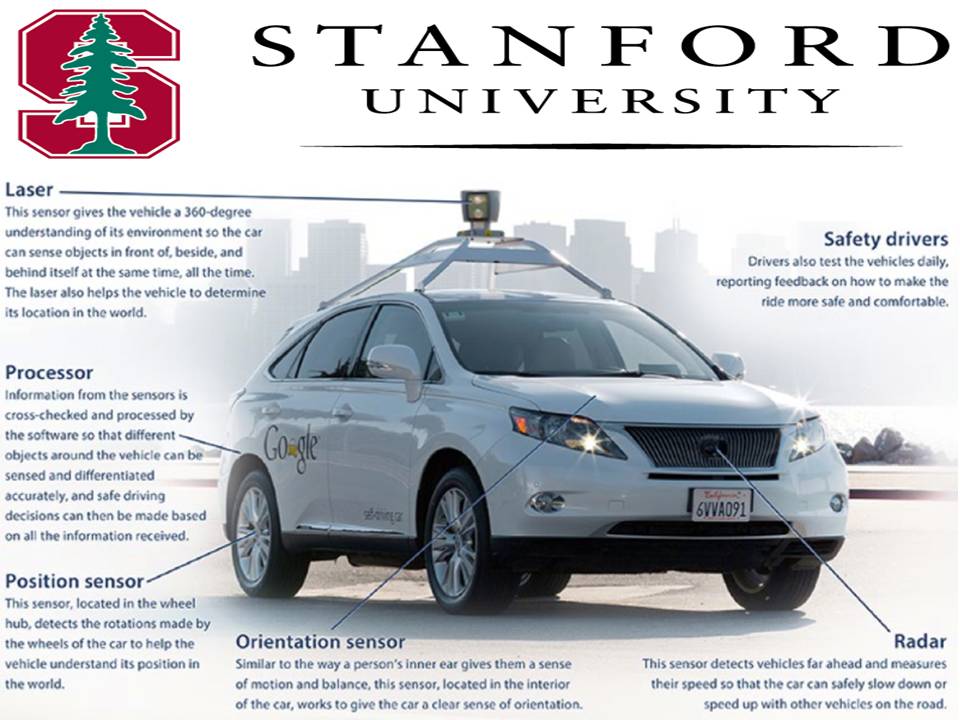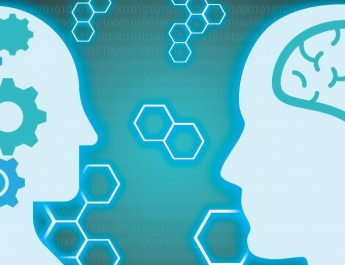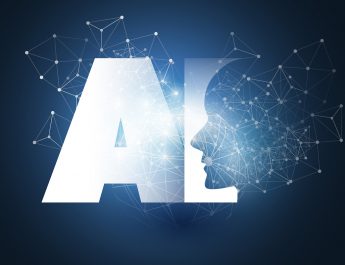Stanford professors discuss their innovative research and the new technologies that will transform lives in the 21st century.
At a live taping of The Future of Everything, a SiriusXM radio program hosted by Stanford bioengineering professor Russ Altman, two Stanford engineering professors discussed their contributions to two of the tech world’s most cutting edges: artificial intelligence and autonomous vehicles. Computer scientist Fei-Fei Li and mechanical engineer Chris Gerdes spoke about their work pushing the boundaries of what machines can do, and the many ways that our lives will be impacted by interactions with technology in the very near future – if not today.
Li outlined some of the major advances that have pushed AI research forward in the years since she entered the field in 2000, a period in which data collection and computing power flourished and “started to converge in a way that most people didn’t expect.” After touching on her seminal work in automated image classification, Li moved on to some of her current projects “using AI to play the guardian angel role in health care.” For instance, she’s working on how sensors installed in senior living facilities can balance care with independence, and track living behaviors such as motion patterns, social activity, nutrition intake and sleep patterns – all of which could help early detection of things like dementia. “This is why I call it a guardian angel. It’s quiet, it’s continuous, it doesn’t interrupt your life, but it’s there for you and providing the help when needed.”
As a leader in the field of self-driving cars, Gerdes said he’s confident that we can soon give cars the skills of the very best human drivers, and maybe even better than that. The bigger issues, he said, have more to do with designing public policies for self-driving cars and asking questions like whether we program automated vehicles to do what humans do or what the law says. And we can’t afford to put these questions off. “The proliferation of this technology will be much faster than people realize,” Gerdes said. “The real risk is how do we make sure that it’s accessible, affordable, sustainable transportation for everyone.”
Li and Gerdes agreed that the question is less whether artificial intelligence and smart machines will happen, but rather what we need to do to responsibly prepare for them. “With the speed of technology improving, the age of humans and machines coworking and coexisting together has begun,” Li said. “And this is more reason to invest in more basic science research, from technology to laws to moral philosophy and ethics to really give us guidance in terms of how humans can coexist with machines.”




